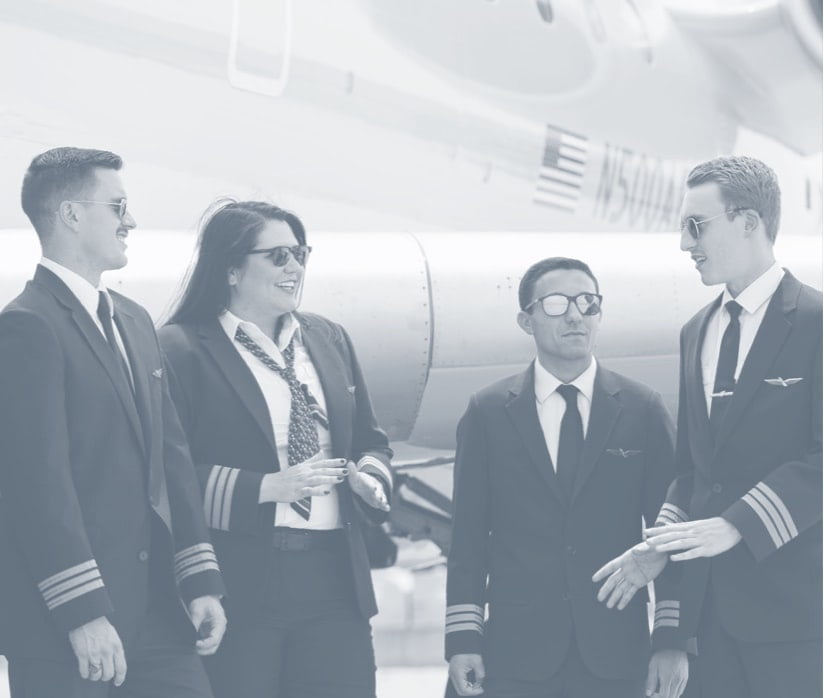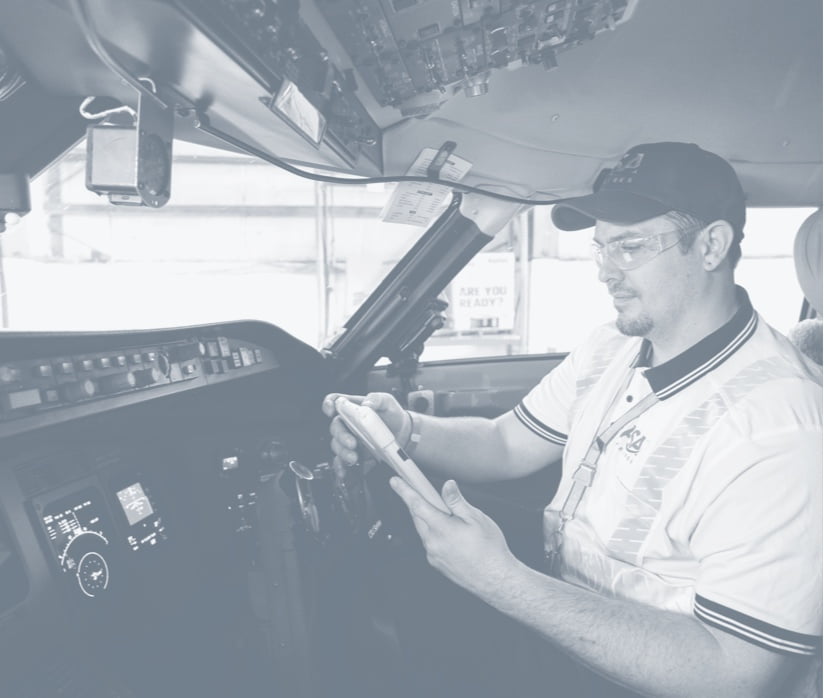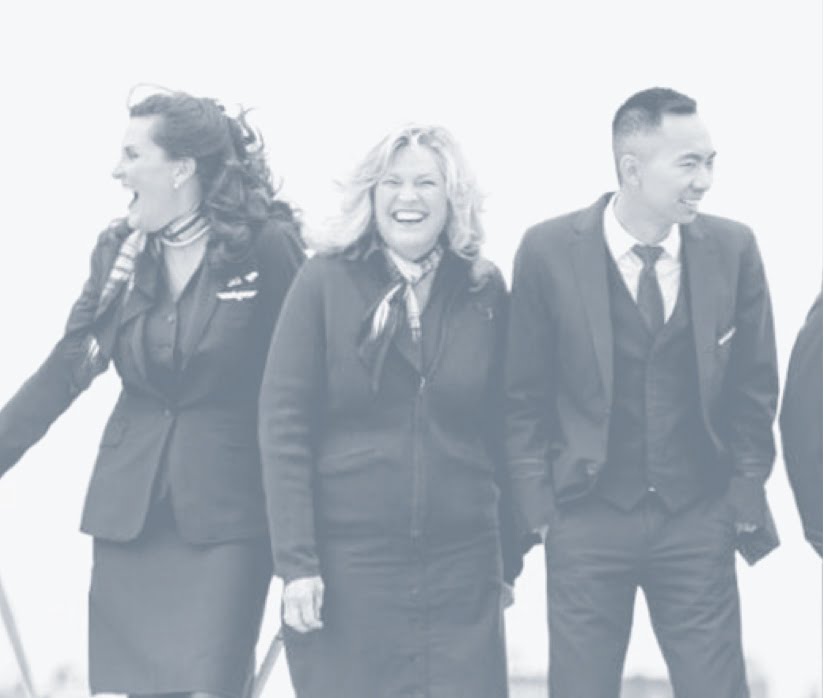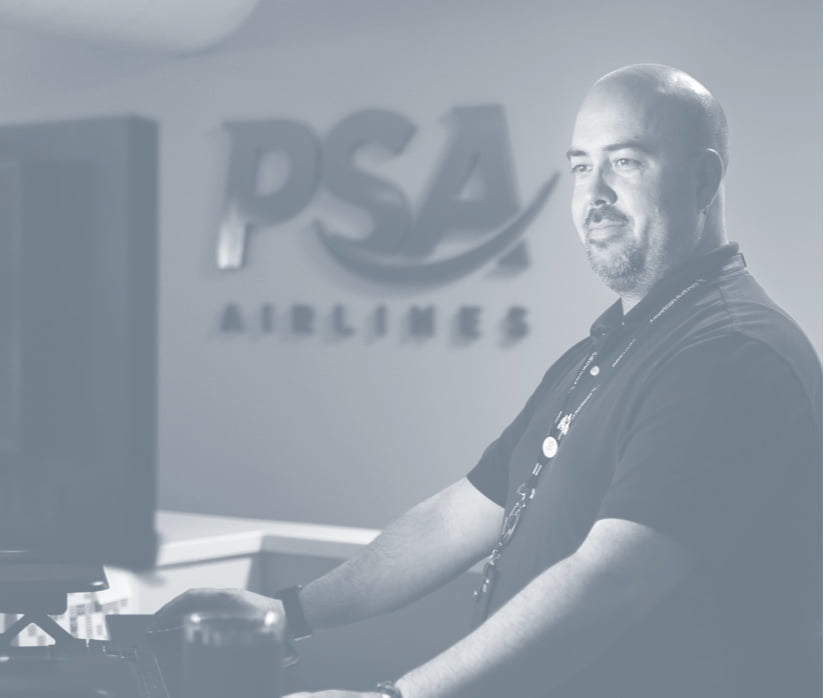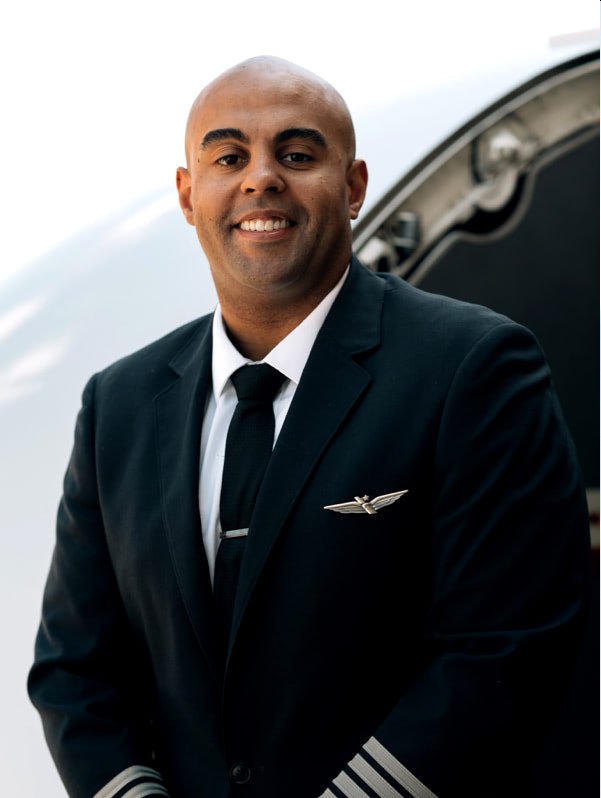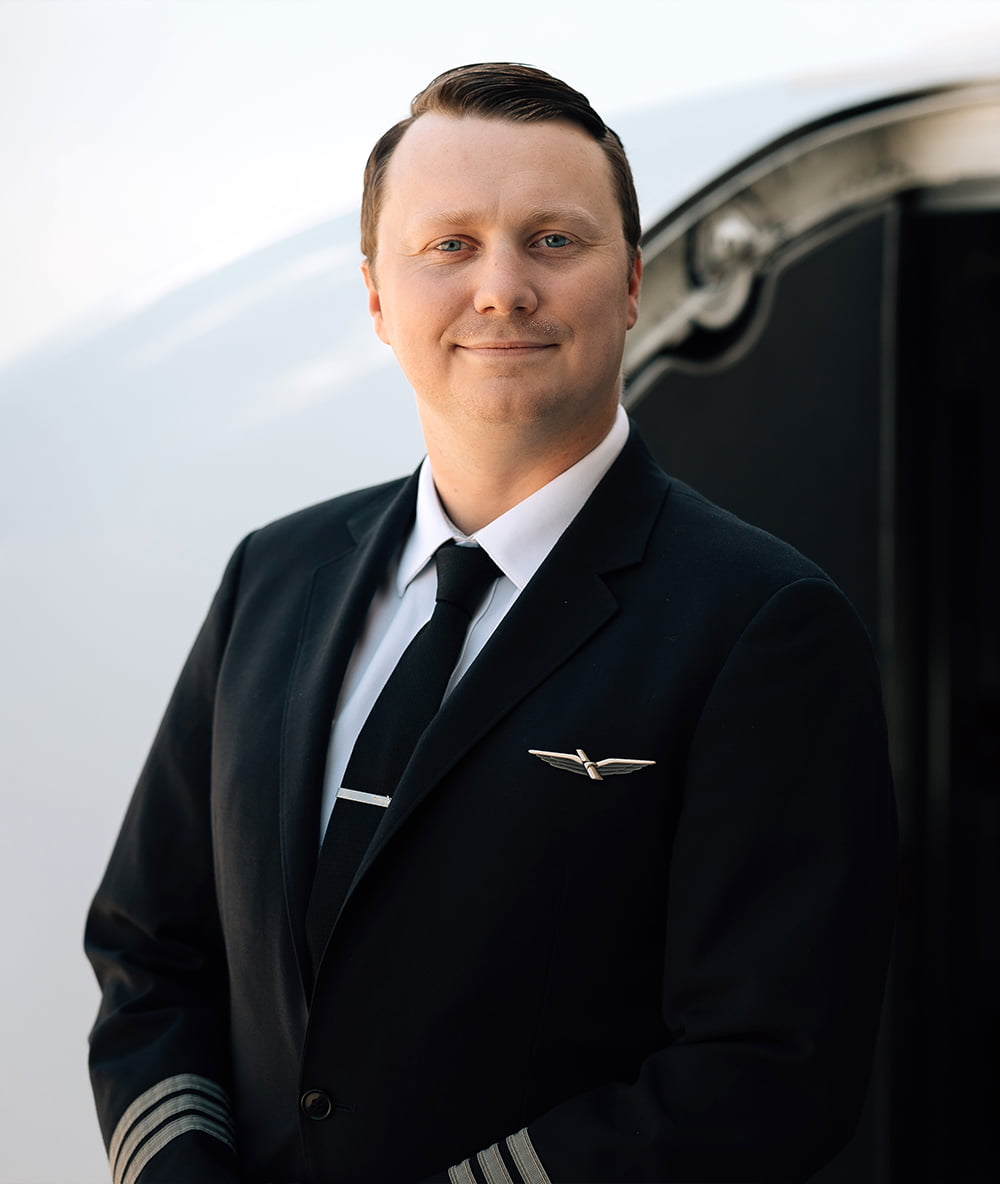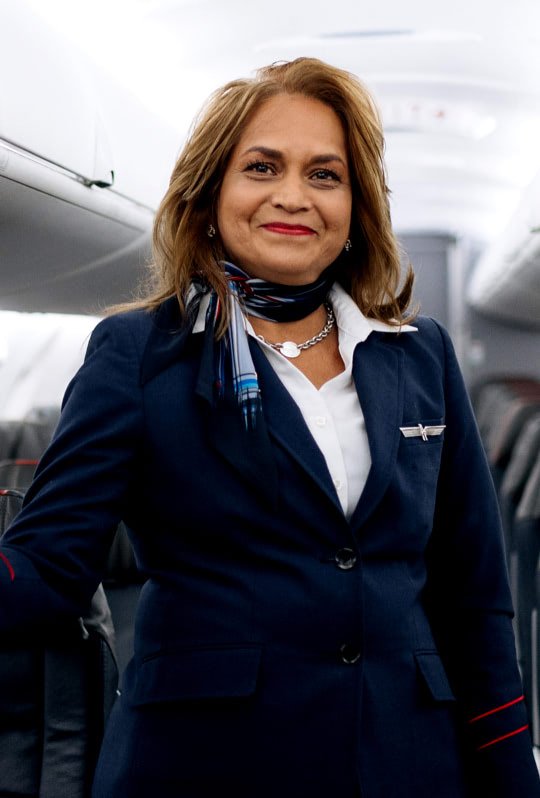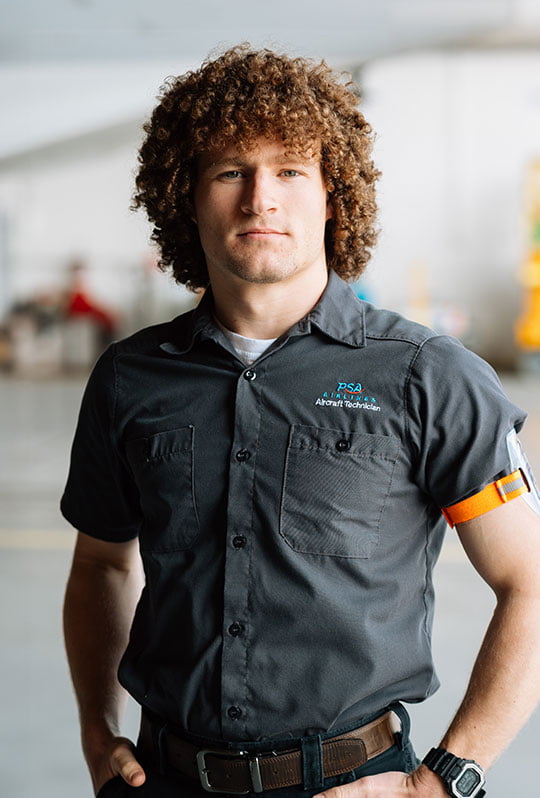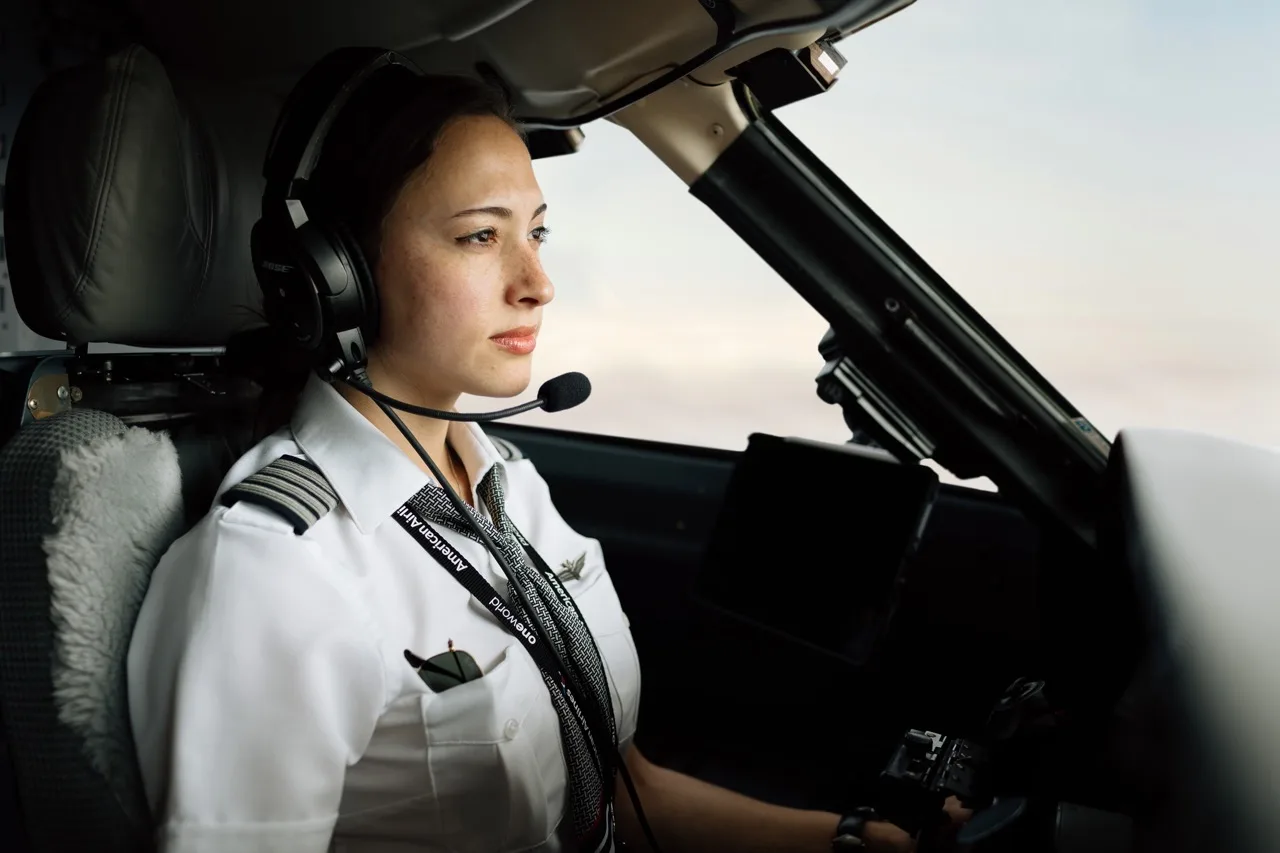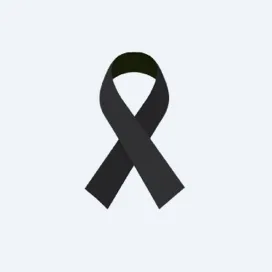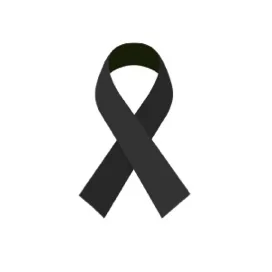Stay Current PSA Newsroom
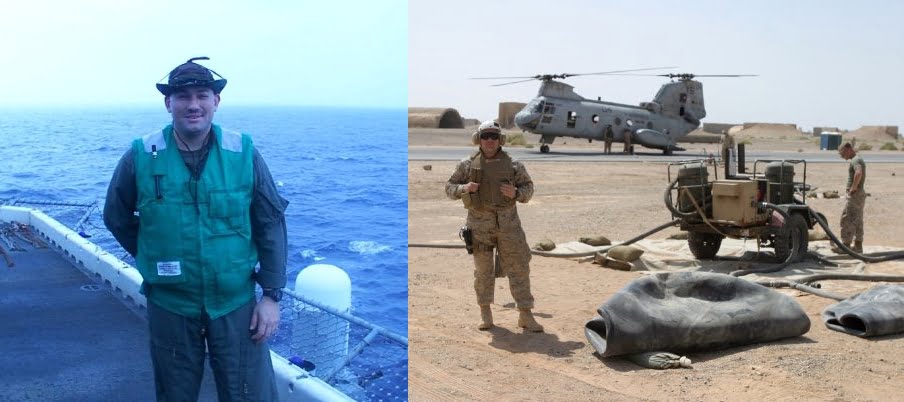
January 10, 2023
Stories of Honor: Captain Scott Peters, U.S. Marine Corps
We are proud to honor the men and women of PSA who served in the military by highlighting their stories throughout the month of November. DCA-based Captain Scott Peters was an officer in the U.S. Marines from 1996-2006. Scott explained how he became a Marine, some of what the Marines taught him, the transition to commercial flying, and how his military career has helped him at PSA.
In high school, I wanted to go to the Naval Academy to fly the F-14, but numbers were cut that year and I didn’t get in. I started college and a Marine recruiter contacted me. I told him I wanted to get my degree before joining and I wanted to fly. I took the aviation qualification exam with three college seniors; I was the only one who passed. The Marine Corps offered me a guaranteed slot to Naval Aviation Flight School if I completed all the necessary requirements. I did what they asked and received a military commission on the afternoon of my college graduation. I reported to NAS Pensacola to start flight training to become a marine aviator. I chose to fly helicopters and selected the AH-1W Super Cobra attack helicopter. I was stationed at MCAS New River in Jacksonville, NC, where I lived for 10 years.
I completed two deployments, one aboard (amphibious assault ship) LHD-1 USS Wasp and then on LHA-2 Saipan. During Operation Iraqi Freedom, I ran the largest and busiest forward operating base during the war. This base was located at the end of a long fuel hose in Kuwait. I then conducted a non-flying tour as the assistant air operations officer and forward air controller with the 26th Marine Expeditionary Unit. This assignment meant another deployment aboard LHD-3 Kearsarge. While there, I wrote an award-winning safety program. I completed my commitment and left the Marines with an honorable discharge in 2006.
The Marines taught me that your people are your best weapon. If you don’t take care of them, they won’t be willing to contribute when asked.
My journey to PSA was a little different than individuals who went right to the airlines. I worked in the aerospace industry as a government contractor for many years. I found that work to be productive and lucrative – when you had a contract – but those contracts start and end without notice. I moved back home and got a job as a first officer for a company that flew corporate jets. The pay was terrible, but I enjoyed the little bit of flying that we did. I left that job to work as a project manager in heavy industrial engineering, mainly specialty chemical plants. After several years of doing that, I realized that my passion was aviation. I ran into two different friends that were both flying for PSA. I applied, had a great interview, and the rest is history. I feel like the Marine Corps prepared me for being a good pilot at PSA.



